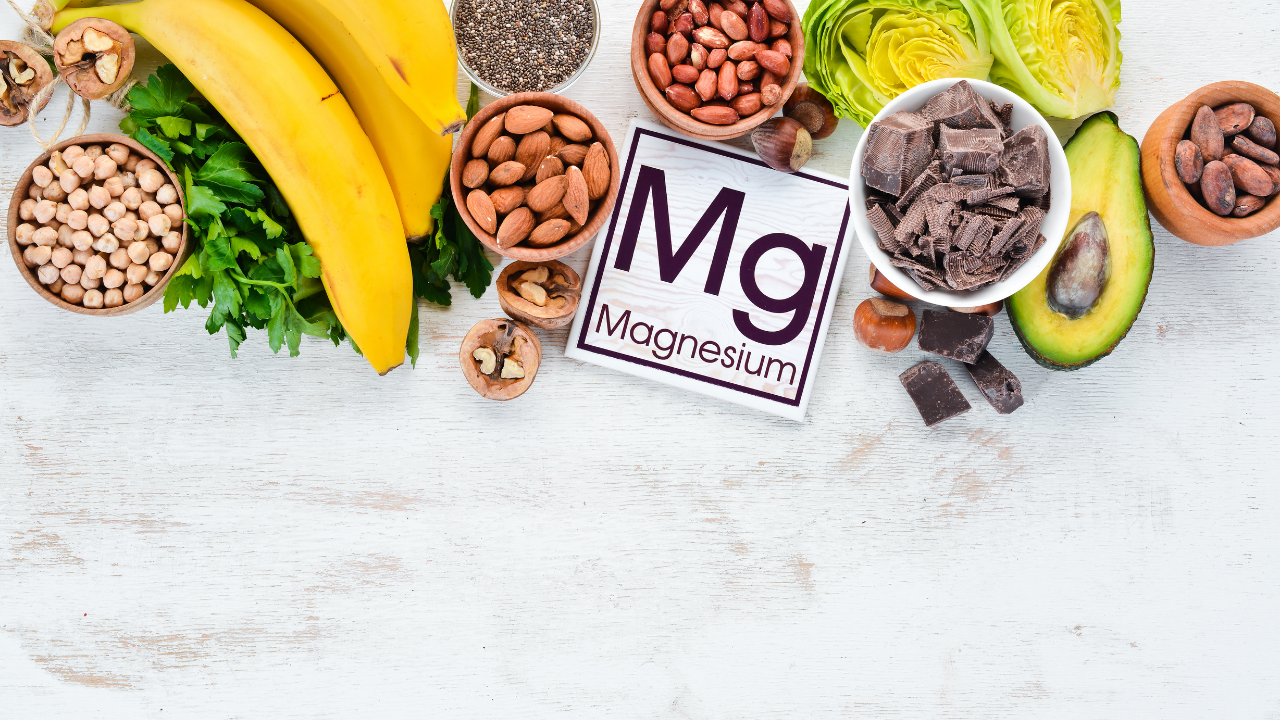Magnesium and Anxiety
Apr 09, 2021
Magnesium is a naturally occurring mineral found in food that’s known to relax the brain and body. It is beneficial in the treatment of migraines, insomnia, anxiety, depression, and coronary artery disease.1 Yet experts say that up to 75 percent of people in the United States are not meeting their recommended intake of magnesium! 2 Could this be a contributing factor in why so many are suffering from anxiety? Yes, magnesium deficiency has been shown to cause anxiety.3 One study found 75 percent of depressed patients to be magnesium deficient with another 9 percent at borderline levels.4
Supplementation with magnesium has been shown to directly reduce stress and anxiety. An efficacy trial showed that magnesium supplements may be a fast, safe, and easily accessible alternative, or adjunct, to starting or increasing the dose of antidepressant medications. 5
You should regularly consume magnesium-rich foods, and the recipes in my book, Anxiety-Free with Food provide guidance on how to build recipes from ingredients that do this. But I would also recommend taking a magnesium supplement. Magnesium is one of my personal favorite anti-anxiety supplements. After I started taking them, the feelings of depression and anxiety I was experiencing were reduced and my sleep improved.
The main reason people are deficient in magnesium is due to low dietary intake. Check with your doctor if you are deficient, and then you can supplement if you are. Follow the labels on the back of magnesium supplement bottles for recommended dosages. Intravenous magnesium is also available to people who are extremely deficient.
Fun fact: You can take a magnesium bath! Simply add Epsom salt (magnesium sulfate) to your bath water or a footbath. The magnesium can be absorbed through your skin while also relaxing your muscles and relieving tension.
I recommend taking Epsom salt baths once a week to relieve some anxiety. Add 1/2 cup to 2 cups of Epsom salt that has been drizzled with essential oils (try lavender) to a warm or hot bath. Soak for 10 to 20 minutes. I do this often, and it really helps me wind down. (Let someone know you are going in the bath beforehand as it may cause lightheadedness.)
My own Anxiety-Free Supplements have 10 organic ingredients that include magnesium; spirulina, flaxseed, echinacea, chlorella, Schisandra, celery, ginkgo, bilberry, turmeric.
Resources:
1. N.B. Boyle, C. Lawton, and L. Dye, “The Effects of Magnesium Supplementation on Subjective Anxiety and Stress: A Systematic Review,” Nutrients, vol. 9, no. 5 (May 2017), doi: 10.3390/nu9050429.
2. M.P. Guerrera, S.L. Volpe, and J.J. Mao, “Therapeutic Uses of Magnesium,” American Family Physician, vol. 80, no. 2 (July 15, 2009), PMID: 19621856.
3. S.B. Sartori, et al., “Magnesium Deficiency Induces Anxiety and HPA Axis Dysregulation: Modulation by Therapeutic Drug Treatment,” Neuropharmacology, vol. 62, no. 1 (January 2012), doi: 10.1016/j.neuropharm.2011.07.
4. S. Cornish and L. Mehl-Medrona, “The Role of Vitamins and Minerals in Psychiatry,” Integrative Medicine Insights, vol. 3 (2008), pp. 33–42, PMID: 21614157.
5. E.K. Tarleton, et al., “Role of Magnesium Supplementation in the Treatment of Depression: A Randomized Clinical Trial,” PLoS One, vol. 12, no. 6 (June 27, 2017), p. e0180067, doi: 10.1371/journal.pone.0180067.


